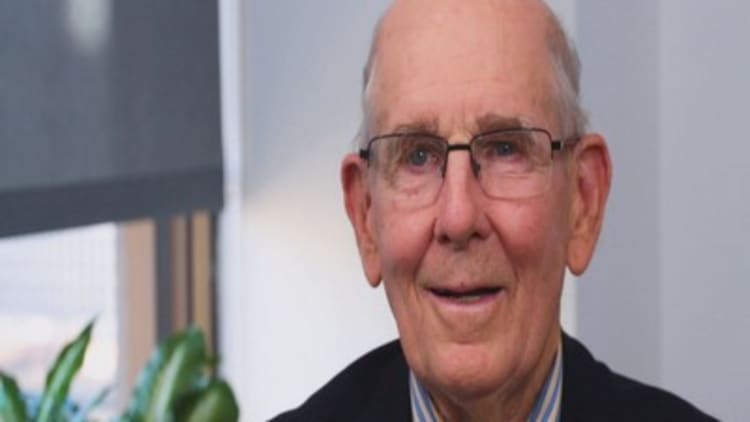U.S. government debt yields held steady on Tuesday after Federal Reserve Vice Chair Richard Clarida stressed the importance of policymakers being "data dependent" and more cautious about further rate hikes.
The Federal Open Market Committee's newest member said the Fed's monetary policy is "much closer" to a so-called neutral level that is neither stimulative nor restrictive than it was when it began its latest hiking cycle back in December 2015.
"A monetary policy strategy must find a way to combine incoming data and a model of the economy with a healthy dose of judgment — and humility! — to formulate, and then communicate, a path for the policy rate most consistent with our policy objectives," Clarida said in prepared remarks.
The yield on the benchmark 10-year Treasury note was largely unchanged at 3.066 percent at 11:58 a.m. ET, while the yield on the 30-year Treasury bond was up at 3.32 percent. Bond yields move inversely to prices.
Recent economic data — including strong GDP and employment prints — have prompted Fed's policy-making arm to defend its three increases to the overnight rate this year. Both the Fed and markets anticipate a fourth rate hike in December.
The current federal funds rate rose to 2.25 percent when the FOMC voted to bump the rate on September 26, 2018.
Clarida's speech "was kind of mixed, and my general feeling is that this Fed is really not going to change very much," said Tom di Galoma, head of Treasury trading at Seaport Global Holdings. "I do think the Fed is going to be a bit more data-dependent, but I don't see any reason for them to hesitate in lifting rates in December or back off rate hikes in both March and June."
Clarida's comments come a day before Chair Jerome Powell is due to participate in luncheon at the Economic Club of New York, which will be closely watched by investors to see if he comments on the state of monetary policy.
Treasurys
Investors in the bond market will likely be turning their attention back to trade, as the tit-for-tat dispute between the U.S. and China shows signs of reigniting.
Ahead of a Group of 20 summit, set to take place in Argentina later this week, President Donald Trump told the Wall Street Journal that it was "highly unlikely" that the U.S. would delay from a tariffs increase to 25 percent, in regards to $200 billion worth of Chinese goods. The U.S. leader went onto suggest in the same interview, that he could impose a 10 percent tariff on laptops and iPhones imported from China.
Consumer confidence inched lower in November, but still remained near historically strong levels, according to data released on Tuesday. The Conference Board's Consumer Confidence Index slipped to 135.7 this month, below the 135.9 print economists had expected.
The U.S. Treasury is set to auction $40 billion in five-year notes.
"We're seeing the highest auction sizes that the market's ever seen. We had a pretty large reduction in foreign bond purchases so I think the market is a bit nervous taking on 5-year and 7-year supply," di Galoma added. "We're seeing a two- or three-year low in Chinese investment, and I think the strong U.S. dollar has made the Treasury market less attractive."
The Treasury trader added that as a part of its historic debt issuance, the U.S. government has auctioned about $300 billion in bills and notes over the past 10 days.
—CNBC's Alexandra Gibbs and Jeff Cox contributed reporting.
WATCH: How the Fed could cause the next recession, according to Gary Shilling



